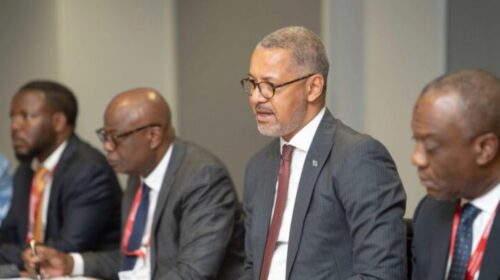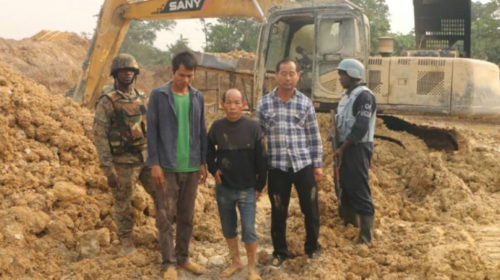DRC: local processing of mining products, will the State extend the moratorium or change the law?
The Minister of Mines, Willy Kitobo Samsoni, has just announced the organization, from March 29 to 30, 2021, of a workshop on the post-moratorium granted to exporters of copper sulphide concentrates. This derogation expires on April 12, forcing the stakeholders to make an assessment of the efforts undertaken.
The approach would consist in assessing the advisability of considering a further extension of the moratorium. Although temporary, this solution is criticized by some as long as it undermines the provisions of the mining law.
“I am convening a workshop in Lubumbashi on March 29 and 30, 2021 to discuss the difficulties of locally transforming the copper sulphide concentrates produced in the provinces of Haut-Katanga and Lualaba, and to discuss the evolution in terms of efforts undertaken by all stakeholders in order to find an ideal solution for the national economy, the main base of which is the mining sector ” , announced the Minister of Mines in an official press release.
In other words, this downtime should allow the Congolese state to get an idea of the fundamental reasons for the next extension of the moratorium by six months or more. The sine qua non being, for mining producers, the justification for a subsequent processing project on site.
The Congolese mining law prohibits the export of raw mining products and even unfinished concentrates. This means that the country requires a local transformation to give to the market products extracted from the deposits of mineral substances of the soil and subsoil of our country a greater added value before their export.
Faced with the need to extend this deadline again, which is motivated by objective elements linked to the difficulties facing mining companies, analyst Engunda Ikala called on the Government to definitively resolve this problem.
This requires the amendment of Law No. 007/2002 of July 11, 2002 on the Mining Code in order to insert a provision extending the time limit for processing and processing mineral substances in DR Congo.
To motivate her argument, Engunda Ikala mentions article 342 ter of the revised Mining Code which clearly states that “holders of valid mining rights have a period of three years to proceed, on the territory of the Democratic Republic of the Congo, to the treatment and transformation of mineral substances exploited by them. The period provided for in the first paragraph of this article may only be reduced or extended by a modification of this provision by the two chambers of Parliament ”.
Considering that the revised Mining Code entered into force on March 9, 2018, he insists, mining title holders had until March 9, 2021 to start processing their products locally.
And to clarify: “the extension of this period is within the competence of Parliament, the Minister of Mines therefore does not have the competence to extend it until April 12, 2021 as he announces in his correspondence. “
A good analysis of this situation, it turns out that the DR Congo is facing two obvious facts.
First, despite the efforts made so far, the mining industry still faces operational challenges including an energy deficit of over 1,000 megawatts . Forcing these mining operators to import electricity to run their processing units would increase their production costs of mining products, making them less competitive on the market.
Clearly, the DR Congo will not be able to reach the potential of its mining production without having filled this energy gap.
The second reality is that neither the mining industry let alone the state is ready to concede the loss of income at this time of improving prices where the demand for copper and base metals is growing in a context of a pandemic. of Covid-19 impacting the global economy.
Hence, the imperative for the Congolese Government to take this temporary measure aimed at extending the moratorium on the export of copper sulphide concentrates.
At the same time, should he initiate the process of revising the Mining Code in order to strengthen the power of the ministerial decree deciding on this specific matter. Failure to do so and as long as the problem of electrical energy is not resolved, the moratoriums will multiply every six months without the objectives being discounted in the long term.
![]()





